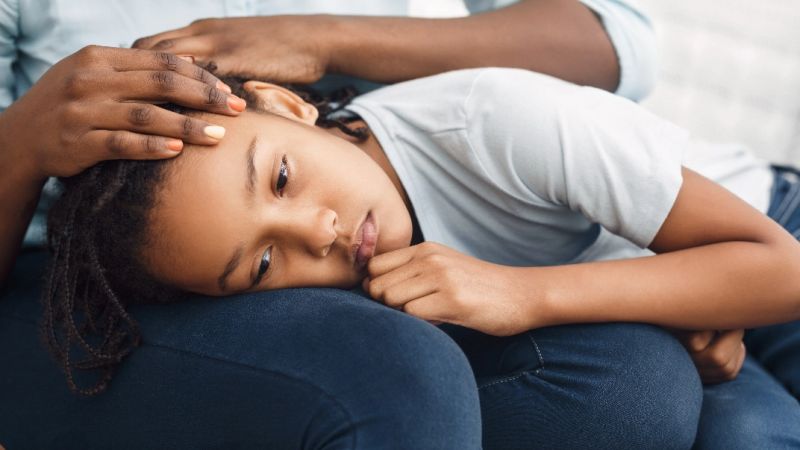Anxiety and depression, though heard of very commonly, may come as a shock if someone so young gets diagnosed with such disorders.
But the truth is, these disorders are common in children, adolescents, and adults alike. 9.4% of children and adolescents aged 3-17 were diagnosed with an anxiety disorder between 2016 and 20191. This is just one statistic to show you that your child is not alone and is dealing with something his peers go through as well.
How do I deal with my child going through something like this? How can I support him? The first thing you need to do is not blame yourself for it. You must understand that given you provide him with a loving and nourishing environment, such a diagnosis is not your fault.
In the future, you should be as supportive and open as possible for your child. You support your child by listening to him. You listen to their daily struggles and feelings and let them know that their feelings are completely okay.
Your child will expect to be validated, especially by his role models. By creating an environment that encourages open communication with no room for guilt or shame, you provide your child with a safe space where they can be themselves. Try to reassure them that things will be okay, even if they seem grim.
In their daily life, children with depression may struggle to maintain a routine and might have difficulty with low energy and productivity levels. Try to anchor them as much as possible and engage them in feel-good activities like exercise, going out, and even getting enough sleep.
If your child suffers from panic attacks, learning breathing exercises and meditation techniques with him may be of great help. As their parents, try to educate yourself as much as possible on their condition. Lastly, take care of yourself. Ground yourself because your child needs a healthy, stable you and not a burnt-out version of his parent.










